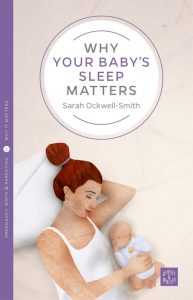Mayim Bialik is a neuroscientist, an actress, and with this book a real spokesperson for Attachment Parenting. If you imagine a spectrum with absolutely routine-focused, parent-led families at one end, and completely baby-led, bed-sharing, nappy-free families at the other end, then Bialik is telling a story set right at the tip of the baby-led end of that spectrum. The title “Beyond the sling” tells us just how far along it is.
As she tells us at the start, this is not a quick-fix parenting manual. Although she clearly is writing about what, in her view, is the best way to parent, she delivers most of this through anecdotes about her own family. I spoke to a new mother recently who liked that because it gave her a new perspective to think about, rather than telling her what to do.
Attachment Parenting considers parenting to be “the most natural and instinctual event on the planet.” (p11), fostering respectful and loving relationships between parent and child, and ensuring a securely attached, happy individual. Bialik argues that this process is innate and this outcome biologically inevitable, and devotes one chapter to explaining some very basic science behind attachment theory. This section was disappointingly thin on actual science.
Part Two of the book is entitled “What a baby needs,” and covers birth, breastfeeding, babywearing, bedsharing, and elimination communication, which she feels gave her a deep intuitive connection with her children. These chapters are mostly evidence-based, however they frame this style of parenting very much within the limitations of natural birth, exclusive breastfeeding, and easily cleanable floors, which I fear would make her exhortations inaccessible to many parents.
Part Three is about what babies don’t need, and while there is much to admire in keeping one’s home free of battery-operated toys, I absolutely cannot get behind her “informed decision” not to vaccinate her children, and feel that the resources offered to support this very brief section are rather one-sided.
The chapter on discipline gave me a lot to think about; I felt like I violently agreed or disagreed with every other paragraph. There is much clear and logical thinking about how to deal with behavioural matters, but many of the anecdotes about how she and her co-parent implement this thinking seem not to line up with the theory. I think that a child would understand “not for Miles” (p195) to mean exactly the same thing as “no,” but perhaps it depends on the parenting context. I feel like I must be missing some very subtle nuance here.
I would be unlikely to recommend this book to someone who hadn’t specifically asked for something on Attachment Parenting. I am uncomfortable with dogma at any end of the spectrum. Bialik states that “this is not a judgemental book,” nor is it one of those books that “make me feel that I am failing and inadequate,” (p13); and yet this is exactly how I felt reading it – and this is from the perspective of a straightforward birth, bedsharing, full term breastfeeding, and a pretty good grasp of brain development myself. When Bialik claims that she does not need to put her own needs on hold to parent in this extreme way, she also contradicts herself by repeatedly telling us how tired she is, but that it is the right thing to do. I think it would be okay to be honest about the amount of sacrifice needed to parent in this extreme way, and that there are parents who will choose it anyway, or moderate their approach to meet both their own needs, and those of their children.
Disclosure: I was sent a free review copy of Beyond The Sling by the publishers Pinter & Martin. You can currently buy it on their website for £6.99.
 I am full of admiration for Sarah Ockwell-Smith in her firm and thorough representation of attachment parenting, particularly around the difficult subject of infant sleep.
I am full of admiration for Sarah Ockwell-Smith in her firm and thorough representation of attachment parenting, particularly around the difficult subject of infant sleep.